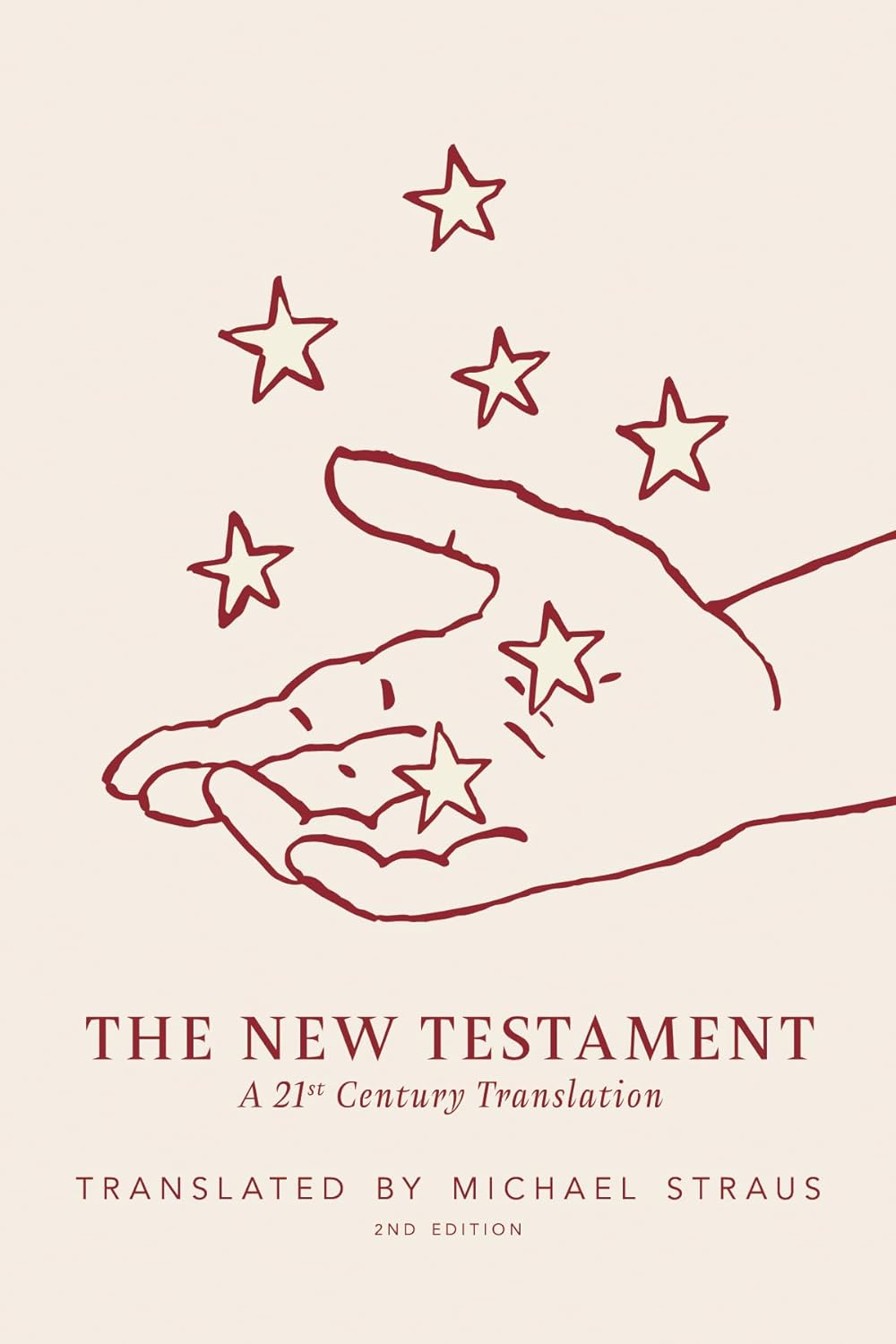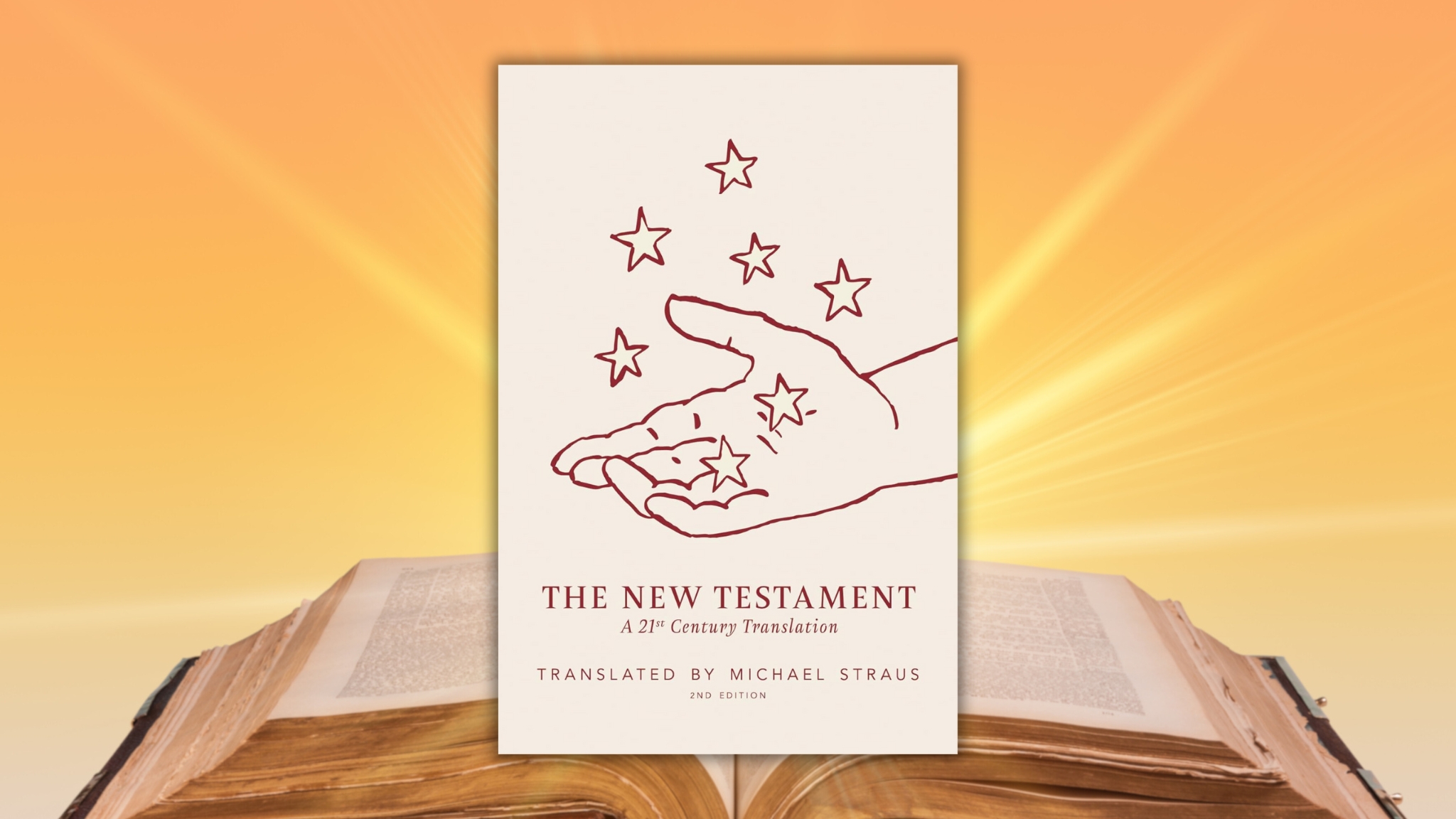The New Testament: A 21st Century Translation by Michael Straus
Translation is tricky. Sure, we can input something into Google Translate or some other such tool and decipher what a passage in a foreign language is about. That’s the literal level of translation.
But there’s so much that goes missing — the subtleties of words and cultural concepts with no exact equivalents in English, the purposeful ambiguities inherent in word choice and order, and the flow and rhythm of words in their native tongue.
If translating literary works of art is an art in itself, full of careful preservation, interpretive risks and necessary compromise, then translating religious texts like the Bible is even more so. This is exactly what classics and theology scholar Michael Straus has proven in his The New Testament: A 21st Century Translation, 2nd edition.
Bridging the Gap
While there’s no need these days to worry about burning at the stake for heresy, new translations are not without risk of starting fires. After all, whole denominations have split off others over the translation of a single concept. Fundamentalist theology, in particular, puts a lot of weight on the Word of God.
But the Word of God, if you believe in it, is sort of like a game of telephone. There’s what God “said” or inspired the author of the text to write, and then there’s the language that the author spoke or wrote in. Then, of course, come the translations of what that author wrote, not just translations from one language to another, but from one era or culture to another. This is why I believe the Word of God is more a spiritual “field” of knowledge that transcends language or context … or even religion.
Perhaps this is why I appreciate Straus’s approach to the thorny challenges inherent in translating the Gospels, Acts of the Apostles, Letters and Revelation. His goal is not just to render words from Greek and Hebrew into contemporary English but to capture the original texts’ essence, style and context. In doing so, he bridges the gap between languages, cultures and centuries.
It’s a delicate balance of literal fidelity and interpretive flexibility, allowing for a nuanced understanding of the texts. And while he has a deep respect for the original sources, he isn’t afraid to take risks, whether that be an apt anachronism or a poetic flourish.
In many places, he masterfully weaves in different interpretations of important concepts and words within the same passage (a far more readable approach than, say, the parenthetical synonyms throughout the Amplified Bible). Sometimes, he’ll leave the original Greek or Hebrew intact where the context can do the heavy lifting, as is his treatment of “alpha and omega” as Greek words in Revelation 22:13 (“I am the Alpha and the Omega…”).
Readable and Accessible
Straus is attentive to style, recognizing the individual voices of those who originally penned each work. But he balances this with readability, as demonstrated in his choice of using footnotes for Paul’s parenthetical (and sometimes non sequitur) observations in his Letters. The key word here is readability, and Straus’s translation succeeds well in this endeavor.
The New Testament: A 21st Century Translation, 2nd edition, is accessible and user-friendly for the modern English speaker while maintaining depth and complexity. By eliminating verse and chapter numbers and focusing on narrative flow, Straus aims to engage readers more directly with the content rather than overwhelming them with scholarly apparatus.
The Translator’s Preface does a great job of preparing reader expectations. Straus’s humility and acknowledgment of the collaborative nature of translation, drawing from years of study, personal experience and scholarly insights, add authenticity and depth to the work. His translation is not presented as a final authoritative version but as a sincere effort to offer readers a meaningful encounter with ancient texts.
It’s evident that The New Testament: A 21st Century Translation, 2nd edition, is a labor of love and scholarly rigor. In it, Straus invites readers to explore familiar texts with fresh eyes and a deeper appreciation for the complexities of language, culture and spiritual expression across time.
 About the Author:
About the Author:
Michael Straus is the translator of The New Testament: A 21st Century Translation, 2nd edition. He holds degrees in classical languages, law and theology. He has previously published translations from Greek and Spanish.




